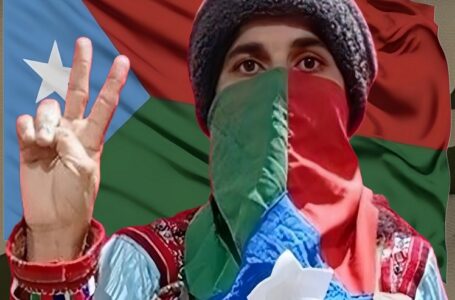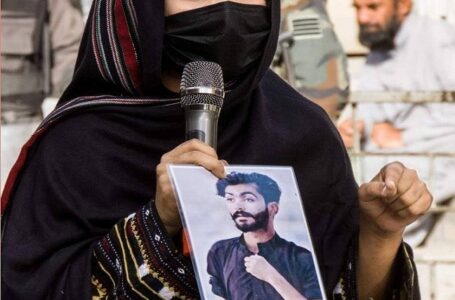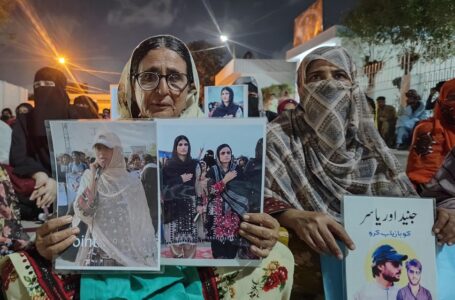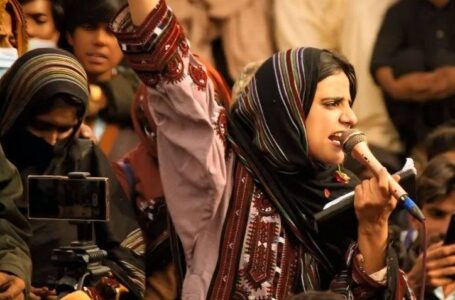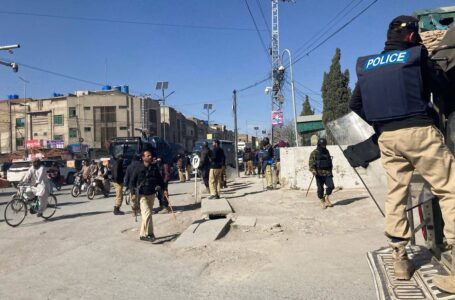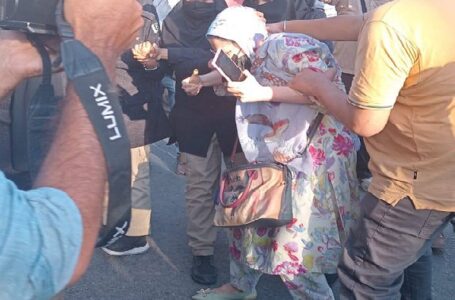BLA Honours its Watan Nadrig for Courageous Attack on FC Convoy in Kalat
Collusion of Iran and Pakistan Against the Baloch Struggle for Freedom
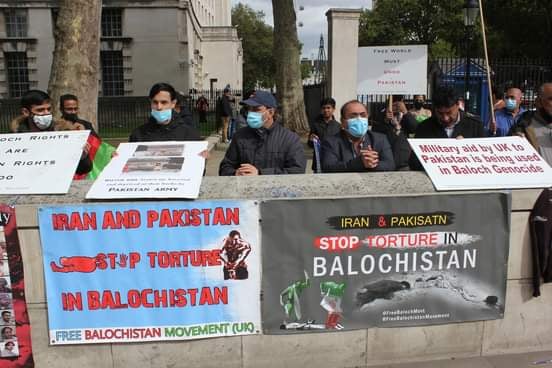
The history of anti-Baloch cooperation between Iran and Pakistan is well-established. During the Baloch liberation movement in the 1970s, Iran supported Pakistan against the Baloch fighters. In 1974, the Pakistani army rounded up Baloch families—including women, children, and the elderly—and placed them in a temporary concentration camp in the Chamalang Valley, located in the Kohistan Marri region of Balochistan. The aim was to force the young men (capable of fighting) to surrender, as they were resisting the aggression of the Pakistani army.
The Pakistani army then threatened to burn down the entire concentration camp, which included families, unless the men came down. Upon hearing this, the fighters descended upon the Pakistani forces, killing hundreds of Pakistani soldiers while defending their families. In retaliation, the Pakistani army bombed the fighters and their families using helicopters provided by the Shah of Iran. It is estimated that more than 8,000 people—including women, children, and the elderly—were killed, injured, or abducted by Pakistani forces during that offensive. Many of them were never seen again. Survivors later recounted horrific tales of torture, mistreatment, and abuse at the hands of the Pakistani military. This massacre became infamous as the Chamalang Massacre in the contemporary history of Balochistan.
This cooperation between Iran and Pakistan has persisted into the present day. During and after the Musharraf regime, both countries handed over several Baloch individuals to each other. Their alliance against the Baloch people remains strong and covert, continuing to target Baloch activists, particularly those advocating for freedom.
To counters the ongoing Baloch national liberation movement, Iran and Pakistan continue to forcibly abduct and disappear thousands of Baloch individuals on both sides of the artificial border (GoldSmid Line). These abductions are often motivated by political affiliations or activities connected to Balochistan. While some of the abducted individuals have no direct involvement in political activism, they are targeted because their family members are active participants or sympathisers of the Baloch freedom movement. These individuals are frequently exchanged between Iran and Pakistan as a form of collective punishment, designed to exert pressure on their families and force them to abandon their support for the Baloch struggle.
Such tactics of collective punishment have been widely employed in various liberation movements around the world. In the case of Balochistan, Iran and Pakistan have used these methods to crush the rising and intensifying Baloch national freedom movement.
For instance, on April 26, 2020, in the Dargis region of Iranian-occupied Balochistan, Iranian forces forcibly disappeared 17 Baloch individuals, including Abdul Jaleel son of Haji Habib, from Pulabad in Pakistani-occupied Balochistan. Abdul Jaleel, along with another individual, has been missing ever since. While most of the abducted individuals were later released, Abdul Jaleel and his companion remain unaccounted for. Iranian officials deny holding him, claiming that he was handed over to Pakistan, where he remains missing.
During a recent protest, his family called for Abdul Jaleel, along with all other missing persons, to be presented in court, asserting that this is their fundamental human right. Veteran Baloch leader Wahid Kambar Baloch was also abducted from Kerman, Iran, on July 19, 2024, and transferred to Pakistan. His fate remains unknown, and Pakistan has yet bring him to the surface and to confirm his custody.
On Wednesday, December 19, 2024, the bullet-riddled body of a Baloch citizen was discovered by fuel carriers at the Pirkor border in Rask County, in Iranian-occupied Balochistan. The deceased was later identified as Sajid Akbar, a resident of the Apsar area in Turbat, Pakistan-occupied Balochistan.
According to sources, Sajid Akbar had previously been affiliated with a pro-freedom Baloch armed organisation but later surrendered to Pakistani forces. Sajid’s family had previously demanded his release during a press conference at the Turbat Press Club on May 24, 2024. During the press conference, Sajid’s sister said:
“Under daily pressure from the Pakistani army to force my brother’s surrender, Sajid finally gave in and surrendered to the Pakistani army under the guarantee of Zakir, son of Abdul Rauf. However, after his surrender, when we approached Zakir, he repeatedly told us that the army and intelligence agencies had not provided him with any information about Sajid’s situation.”
The exchange of missing Baloch persons between Iran and Pakistan further demonstrates their longstanding alliance against the Baloch nation. Their cooperation continues today, not only through joint military operations and bombings of each other’s occupied territories in Balochistan but also through covert operations, in which they share information to target Baloch individuals. This intensifies the suffering and oppression of the Baloch people.
Both Iran and Pakistan are determined to prevent the Baloch nation from achieving independence and sovereignty over their land. To this end, they continue to abduct Baloch individuals on political grounds, subject them to torture in secret prisons, and dispose of their mutilated bodies after years of abuse. In doing so, they also subject the families of the disappeared to prolonged psychological torment. This method of collective punishment has become a tried-and-tested strategy employed by both occupying states against the Baloch people.
The Baloch nation, particularly pro-freedom political parties, must remain vigilant against these covert and destructive actions by Iran and Pakistan. The pro-freedom political parties should not hesitate to expose Iran and Pakistan’s crimes against humanity in Balochistan. A united stand by the Baloch nation, spanning both sides of the artificial border, would increase international pressure on these fundamentalist states, potentially forcing them to halt their anti-Baloch conspiracies and crimes.
The demonstration of unity of Baloch people on both sides of the GoldSmid Line will ultimately thwart the covert plans of Iran and Pakistan, paving the way for the establishment of an independent, United Balochistan.

